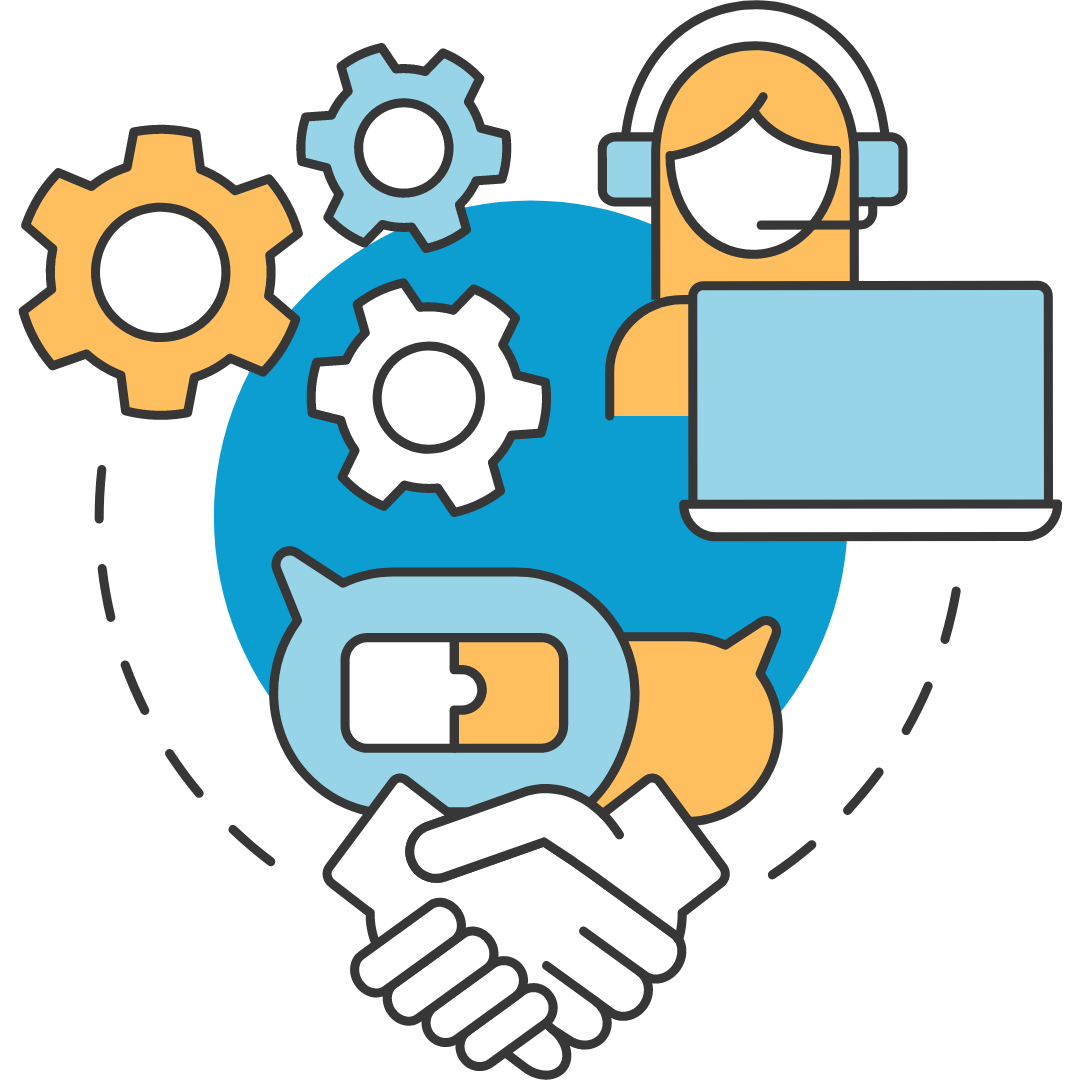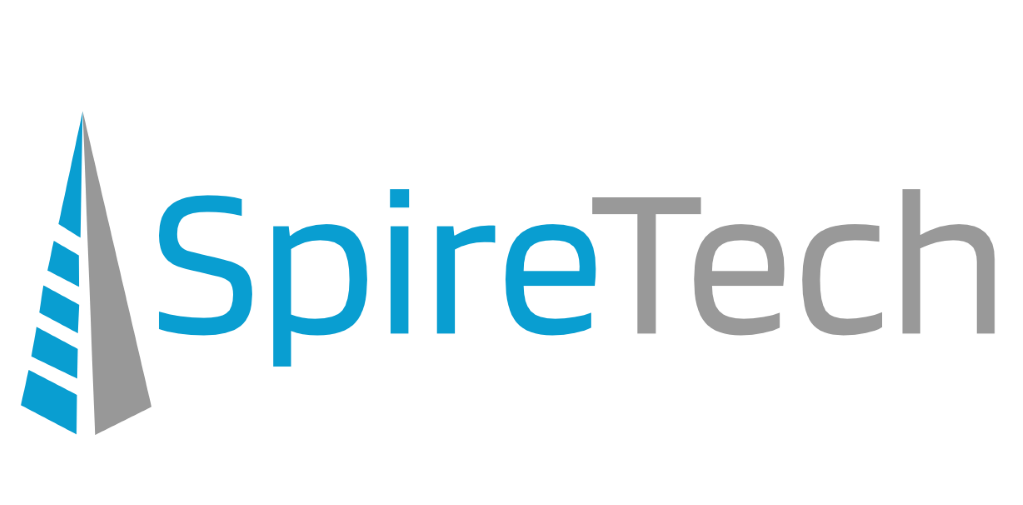
When starting a small business, there are a lot of things to think about. IT is often one of the last things on a small business owner’s mind, but it is one of the most important aspects of any business, especially in today’s digital landscape.
At SpireTech, we believe that every small business should have a comprehensive IT checklist to ensure that their business is running smoothly and efficiently.
We’ve put together an IT Checklist: 10 best small business IT practices to help you get started. These will be areas of IT development, maintenance, and support that you should focus on in order to create a strong IT foundation for your business.
Hardware
Today’s workstations have improved capabilities in terms of processing, graphics, and storage. Simultaneously, they’ve gotten significantly smaller, portable, stylish, and inexpensive over the years.
Considering all these benefits, it should come as little surprise that small- to mid-sized businesses are starting to consider workstations as an alternative to the consumer PCs they’ve traditionally favored.
But how can SMB owners determine if workstations are right for them and, if so, how to select the best machines for their particular needs?
Software
Ultimately, the decision about whether a workstation is needed comes down to the type of software your employees are running.
If, for example, they use very basic office productivity software, such as Microsoft Word or Excel, they might be able to get away with a basic business grade PC. But if they work with anything more graphically intense, say photographs or architectural plans, they will need better performance and reliability.
Engineers, animators, photographers, traders, programmers and other professionals typically prefer to use the highest-quality machines in their trades. These machines allow them to express themselves, their vision, and their skills to the greatest effect. As a result, organizations should consider workstations for inspiring worker creativity, enhancing productivity and delivering products to market more quickly.
Software Deployment
You may also consider adopting a software deployment solution. This would allow you to automatically deploy software updates and security patches to all of your machines, without having to individually update each one. This is one of the core functions of an IT structure.
A software deployment solution can save your company time and money, as well as reduce the risk of human error in deploying software updates.
Network / Connectivity
The next item on your IT checklist should be to ensure that you have a fast and reliable network. This is important for both internal communications and external customers who need to connect to your systems.
There are a few different ways to improve your network speed and reliability. One is to use a wired connection instead of wireless, which can be more reliable and secure. Another is to use a VPN (virtual private network), which can encrypt data and help protect against hacking.
You might want to have redundant connectivity, so that if one connection goes down, you have a backup. This could be in the form of a second internet connection with automatic failover or load balancing.
Cybersecurity
Does cybersecurity matter?
If you said no, your company should be totally disconnected from the Internet, because Cyber-security should be a top consideration – not a checklist item – before you purchase a computer of any kind. According to a 2018 report from the U.S. Chamber of Commerce, “67% of small businesses were hit with cyberattacks in the past year, and those attacks are becoming more sophisticated and expensive to remediate.”
It’s best to consider cyber-security at every stage of your IT planning. That way, you can be sure you’re taking the right steps to protect your data, your customers’ data, and your company’s reputation.
Some basic things to keep in mind:
- Use strong passwords, and don’t use the same password at more than one site.
- Install business grade security software, and keep it up to date.
- Train your employees to be careful about what you click on in email, social media, and other online places.
- Keep your operating system and other software up to date with the latest security patches.
- Back up your data regularly.
- If you’re not sure about something, ask your IT consultant or another expert.
Remember, cyber-security is an ongoing process, not a one-time event. As the threats evolve, so must your defenses.
Backup and Disaster Recovery
As we’ve seen, data is one of the most important assets of any business. That’s why it’s so critical to have a robust backup and disaster recovery plan in place.
There are two main types of backups: full and incremental. A full backup copies all of the data on a given system, while an incremental backup copies only new or changed data.
Full backups are typically done less often than incremental backups, but they’re essential for disaster recovery because they provide a complete copy of the data.
Incremental backups, on the other hand, can be done more frequently, and they’re typically used for regular data backup and protection.
The frequency of backups will depend on the needs of your business. For example, if you have a database that’s updated daily, you might want to do an incremental backup every day. Or if you have a static website, you might only need to do a full back up once a week.
The key is to find the right balance for your business. If you are storing data on Microsoft 365, don’t forget to purchase a backup solution for that, as well.
Mobile
Most SMB owners think of workstations as stationary devices tethered to office desks. But some vendors recognize that with more than 75 percent of the U.S. workforce expected to mobile as of 2020, according to IDC, workstations must be able to hit the road.
Of course, no discussion of mobile devices would be complete without mentioning the ever-popular smartphone. In addition to being a powerful communications tool, today’s smartphones can also be used for everything a traditional computer can be used for and sometimes more.
Email is one of the most commonly used applications in business, and it’s also one of the most essential. That’s because email is often the primary form of communication between businesses and their customers, vendors, and partners.
It’s important to choose an email provider that offers features that meet the needs of your business. For example, if you have a lot of customers who use Microsoft Outlook, you’ll want to make sure your staff is using an email provider that offers integration with Outlook. Microsoft 365 is a natural choice for this.
Website
A small business website is essential for connecting with customers, finding new employees, making transactions, and promoting your brand.
You’ll want to determine the key functions your website will need to perform. For example, do you need to take online payments? Do you need to allow customers to book appointments online?
If you need a custom website and don’t have developers in-house, you’ll need to budget for the cost of website development.
It’s also best practice to have comprehensive security on your website, which usually means having an SSL certificate. This will ensure that all data transmitted to and from your site is encrypted and safe from hackers.
Ongoing Maintenance
Finally, once your website is up and running, you’ll need to budget for ongoing maintenance. This includes things like web hosting, domain registration, email services, security updates, and backups.
You’ll also need maintenance to your cybersecurity infrastructure. This includes things like firewalls, intrusion detection and prevention systems, and email filtering.
Conclusion
As you can see, there are a variety of IT best practices that are essential for small businesses in 2022 and beyond. Do you need help with your small to mid-sized business IT infrastructure?
SpireTech is top Managed Service Provider in the Portland area that helps SMBs with their IT infrastructure. Managed IT services have grown from a niche offering to a well-known concept in recent years, with many businesses already relying on outsourced IT services to some degree. In many ways, this only makes sense, as it allows businesses to enjoy access to services that would otherwise cost too much for them to independently adopt and support.
Book an appointment with us today to learn how SpireTech can help your business with managed-for-you IT services.
